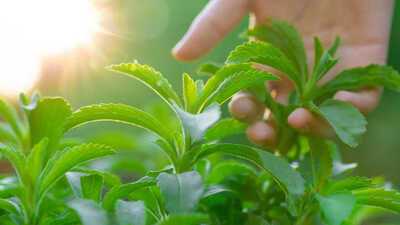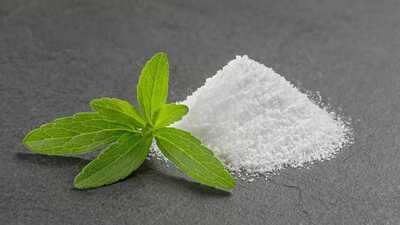Hereditary-patterned baldness, also known as androgenetic alopecia , is one of the most widespread causes of hair loss across genders, affecting nearly 40 percent of people worldwide. Often referred to as male pattern baldness or female pattern hair loss, the condition typically begins in one’s 20s or 30s and tends to progress with age.
While losing up to 100 hairs daily is considered normal, those suffering from this genetic form of alopecia experience a much higher rate of shedding. Contrary to common belief, the so-called “baldness gene” doesn’t come solely from the mother’s side- it’s inherited from both parents.
Why existing treatments fall short
Currently, topical minoxidil remains one of the few FDA-approved treatments for androgenetic alopecia. However, its poor water solubility and limited skin permeability often reduce its effectiveness. This limitation has prompted scientists to explore new ways to enhance absorption and deliver better results.

A recent study published in Advanced Healthcare Materials offers one promising approach. Researchers from the University of Sydney found that stevioside- a natural sweetener derived from the stevia plant- can improve how minoxidil penetrates the skin. In a mouse model of alopecia, they created a dissolving patch containing both stevioside and minoxidil. This combination successfully stimulated hair follicles to enter the growth phase, leading to visible regrowth.
“Using stevioside to enhance minoxidil delivery represents a promising step toward more effective and natural treatments for hair loss, potentially benefiting millions worldwide,” said Lifeng Kang, Ph.D., co–corresponding author of the study, in a press release.
A sweet parallel
The findings echo another recent discovery from researchers at the University of Sheffield and Government College University Faisalabad, published in Frontiers in Pharmacology. Their eight-year study revealed that 2-deoxy-D-ribose, a naturally occurring sugar and key component of DNA, could promote blood vessel growth and hair regeneration . Initially, the team was studying wound healing in mice when they noticed faster hair growth around the treated wounds.
“Male pattern baldness is such a common condition, affecting men all over the world, but at the moment there are only two FDA licensed drugs to treat it,” said Professor Sheila MacNeil, one of the study’s authors. “Our research suggests that the answer to treating hair loss might be as simple as using a naturally occurring [deoxyribose] sugar to boost the blood supply to the hair follicles to encourage hair growth.”

Early but encouraging signs
Both the stevia and deoxyribose studies highlight a growing shift toward natural, affordable, and biologically compatible treatments for hair loss. According to Dr. Muhammed Yar, co-author of the deoxyribose research, the sugar compound is stable, inexpensive, and easily deliverable in multiple forms, making it “an attractive candidate for further research.”
While these findings remain in early stages, scientists agree they mark a meaningful step toward less invasive, more accessible treatments.
While losing up to 100 hairs daily is considered normal, those suffering from this genetic form of alopecia experience a much higher rate of shedding. Contrary to common belief, the so-called “baldness gene” doesn’t come solely from the mother’s side- it’s inherited from both parents.
Why existing treatments fall short
Currently, topical minoxidil remains one of the few FDA-approved treatments for androgenetic alopecia. However, its poor water solubility and limited skin permeability often reduce its effectiveness. This limitation has prompted scientists to explore new ways to enhance absorption and deliver better results.
A recent study published in Advanced Healthcare Materials offers one promising approach. Researchers from the University of Sydney found that stevioside- a natural sweetener derived from the stevia plant- can improve how minoxidil penetrates the skin. In a mouse model of alopecia, they created a dissolving patch containing both stevioside and minoxidil. This combination successfully stimulated hair follicles to enter the growth phase, leading to visible regrowth.
“Using stevioside to enhance minoxidil delivery represents a promising step toward more effective and natural treatments for hair loss, potentially benefiting millions worldwide,” said Lifeng Kang, Ph.D., co–corresponding author of the study, in a press release.
A sweet parallel
The findings echo another recent discovery from researchers at the University of Sheffield and Government College University Faisalabad, published in Frontiers in Pharmacology. Their eight-year study revealed that 2-deoxy-D-ribose, a naturally occurring sugar and key component of DNA, could promote blood vessel growth and hair regeneration . Initially, the team was studying wound healing in mice when they noticed faster hair growth around the treated wounds.
“Male pattern baldness is such a common condition, affecting men all over the world, but at the moment there are only two FDA licensed drugs to treat it,” said Professor Sheila MacNeil, one of the study’s authors. “Our research suggests that the answer to treating hair loss might be as simple as using a naturally occurring [deoxyribose] sugar to boost the blood supply to the hair follicles to encourage hair growth.”
Early but encouraging signs
Both the stevia and deoxyribose studies highlight a growing shift toward natural, affordable, and biologically compatible treatments for hair loss. According to Dr. Muhammed Yar, co-author of the deoxyribose research, the sugar compound is stable, inexpensive, and easily deliverable in multiple forms, making it “an attractive candidate for further research.”
While these findings remain in early stages, scientists agree they mark a meaningful step toward less invasive, more accessible treatments.
You may also like

Work towards making cities secure, resilient, inclusive and future-ready: Union Minister

Leandro Trossard breaks silence after Arsenal made transfer decision

PM Modi bats for swadeshi products to empower India

Rahul Gandhi envisions India's global rise in specialty coffee inspired by Colombian craft

Celebrity Traitors' Clare Balding makes rare marriage admission about wife Alice Arnold





